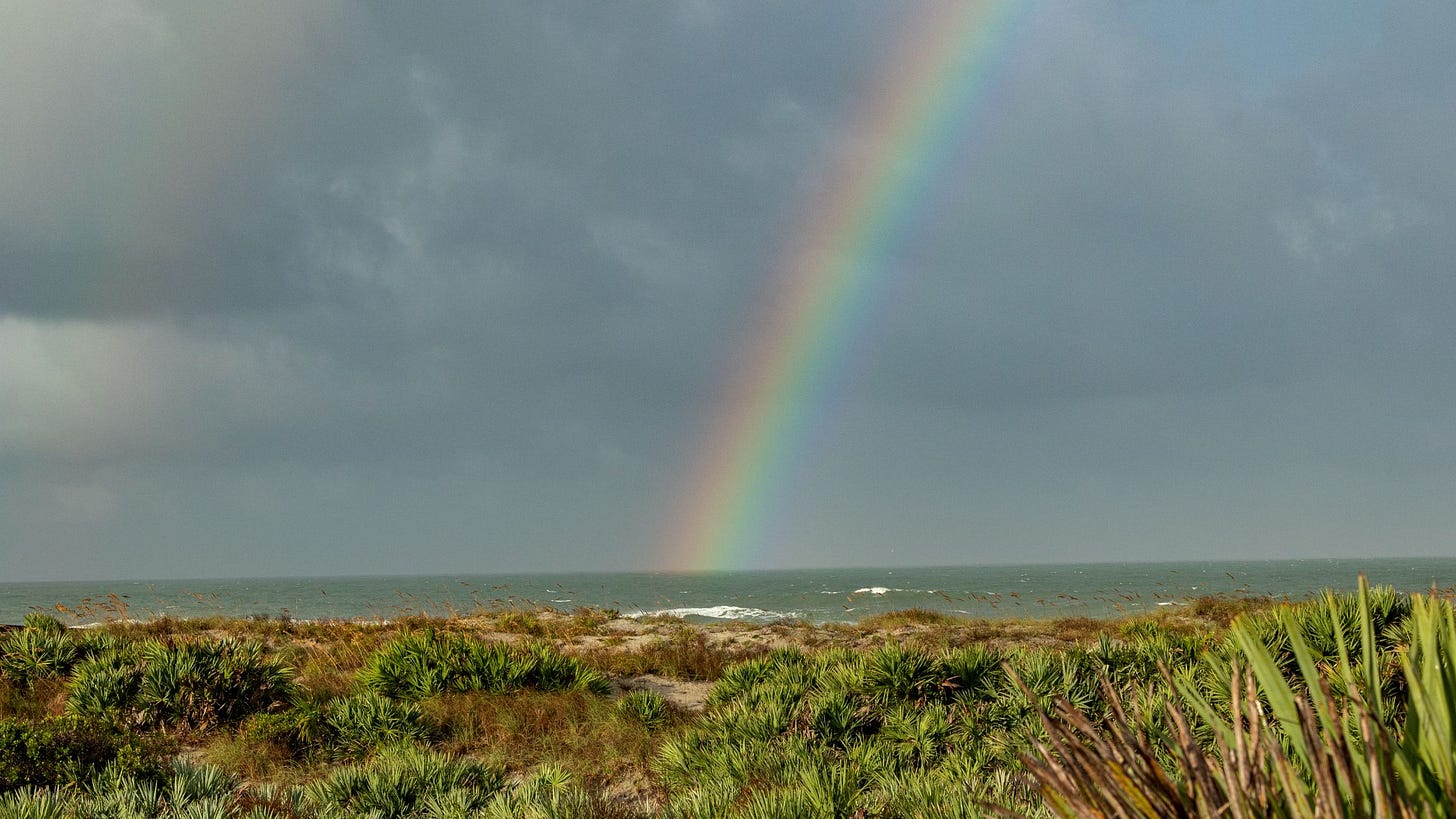What Makes You Optimistic About the Future?
Some reflections and wn informal poll
We live in a time where, honestly, it feels like doom is all around us. We’ve got climate disaster after climate disaster, the upcoming U.S. election where nothing less than the existence of American democracy feels on the line, and the updates after almost nine months of war on Gaza and the massacre of nearly 40,000 Palestinians is seared into our brains. Oof. While many of us are reading this from our relatively safe spot of privilege, the doom can still get to us.
I get it. I’ve had quite a few doom-spiral moments lately and am doing my best to focus on local elections versus the federal ones lest my anxiety ratchets up.
And what my agent has been hearing from publishers is that I’m not alone there. That people are feeling bogged down by the doom. And because of that, they’re wary of putting yet another book about the climate crisis out there. People want an escape, they say. They’ve had good things to say about the writing and the concept of my book, but that climate change is a bummer.
My agent and I still believe in this book and know it will find its place somewhere, but it got us thinking about how to frame it in a more optimistic way. While I thought my approach was hopeful and optimistic–and still believe it is–I suppose starting out with the doom (or really my anxiety about the doom) isn’t always the best way to go about it. It’s been an interesting exercise of having the book out on submission because it’s put our approach in front of an audience (well, the gatekeepers of that audience) and my approach has been reflected back to us.
Their responses aren’t unfounded. In fact, there’s science behind how the “hope gap” can actually prevent people from taking action. Meaning, if someone is constantly bombarded with negative, scary, and doomsday messages around climate change or any other public health crisis, they’re less apt to take action. It’s something well-researched in the public health sphere. “In doctor-patient communication as in public health risk communication,” writes Howard Frumkin in The Journal of Climate Change and Health, “people find frightening or threatening messages unpersuasive (or even repellant) in the absence of recommended actions to reduce the threat (called ‘response efficacy’).” What they need is to know that we are not doomed, that action is not futile, and that there is a hopeful future on the horizon.
I’ve always felt that the book is about that, about manifesting hope and optimism while also facing climate grief. It’s about working to create a better world right here, right now. And of course, that is what the book is about. But perhaps there was too much dwelling on my anxiety and not enough focus on the hope–at least in the proposal. We’ve decided this doesn’t change the book itself because it is largely about optimism, rather it changes the approach to our pitch to really hit them in the face with the positive outlook. The “blue skies” approach as my agent and I are calling it.
I appreciate this shift as well because it’s something I’ve been thinking about a lot. I’ve been trying desperately to envision–like truly sit with a scene in my head–what a hopeful future could look like. How is a community in that future designed? How do people get around, where do they live, how do they interact with one another?
I wrote about how hard it is to do that when I’m so very rooted in what our reality is now. It’s why I’ve been delving into speculative fiction and trying to channel the creativity and radical thinking of authors like Ursula K. Le Guin, Octavia Butler, Naomi Alderman, C Pam Zhang and so many others. I admire their ability to think beyond our current reality.
In that vein, I would also love to hear from you! What makes you optimistic about the future? What kind of future do you think we could have if we worked for it? And what do you want to see to help you manifest optimism about what is to come?
Would love your thoughts in the comments or even as a reply to this email. I’m eager to hear what you’re thinking about.




It's the little things like watching a box "Who Gives A Crap" (bamboo toilet paper/paper towels etc.), being dropped at someone's door, my local eco small business called overhear someone talk about the local no waste store and how they've made the switch to the products there. Seeing a young person choose a drink at a store based on what's available in either glass or cans instead of plastic. Knowing that my neighbors prefer to walk to the local grocer instead of drive, or that a family down the street primarily shops at vintage and used clothing stores to find what they need or they mend what they have.
I'm inspired by the generosity of our local Buy Nothing group whose members are really committed to community building and of course the sharing of resources in that group so new items don't have to be purchased.